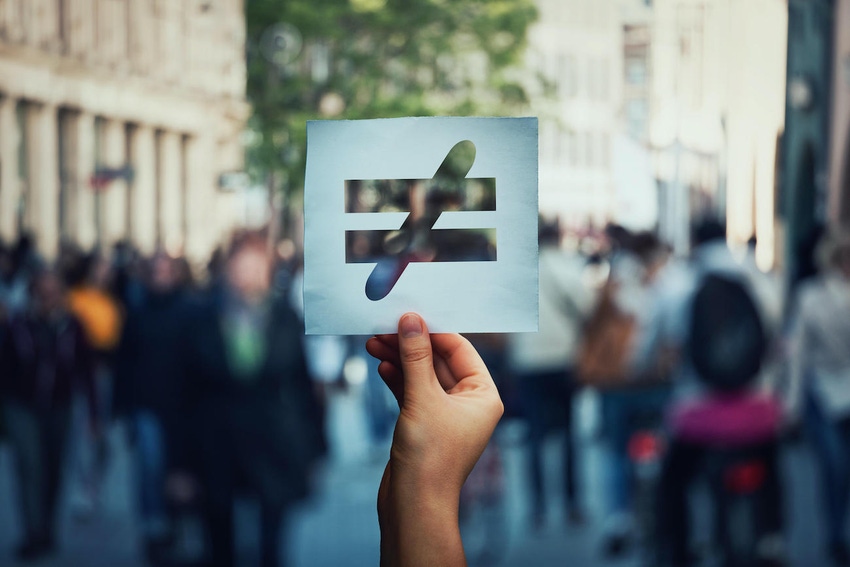Researchers explore how people across different demographics feel about their privacy and security online, with worrying results.

The Internet has become essential to how we work and learn, especially with the massive shift to teleworking and virtual classes over the past 18 months. But while more people are required to spend time online, data shows most don't feel consistently safe and private doing so — and women and people of color suffer from cybercriminal activity the most, new data shows.
Malwarebytes, Digitunity, and the Cybercrime Support Network recently teamed up to create "The Demographics of Cybercrime" report, in which experts polled 5,000 people in the United States, United Kingdom, and Germany. Results show some populations face more varied, and more frequent, cybercrime than others; further, some feel more emotionally burdened and are more likely to financially suffer after an attack.
A closer look at the findings reveals gaps across gender and racial lines, the researchers found. Women were slightly more likely to have experienced suspicious online activity in the past three months, were more likely to have received multiple suspicious text messages, and were twice as likely to say they had their identity stolen as the result of an in-person incident.
"Though women and men said they experienced somewhat similar rates of identity theft, women were twice as likely to say they likely had their identity stolen because their wallet or purse was stolen beforehand," says David Ruiz, online privacy advocate for Malwarebytes.
Only 37% of women claim to feel safe online, compared with 49% of men. Women were more likely to have their social media accounts hacked (46% compared with 37% of men), and women whose social media accounts were hacked were more likely than men (48% compared with 43%) to have that attack lead to someone sending suspicious message to their friends and family.
Black people, Indigenous people, and people of color (BIPOC) feel less secure online than White people, the survey data shows: 38% of BIPOC respondents report they feel "very safe" and "somewhat safe" online, compared with 44% of white users.
Researchers took a closer look at the data and found some types of suspicious online activity affected BIPOC respondents more: 45% have had social media accounts hacked, compared with 40% of white consumers. BIPOC are also more likely to have their identities stolen than white respondents (21% compared with 15%).
BIPOC are also less likely to avoid financial impact due to cybercrime, with 47% saying there was no financial effect resulting from suspicious online activity, compared with 59% of all respondents. Researchers say BIPOC respondents were more likely to receive links sent via text that asked for financial data or compensation (17% compared with 12% of white respondents)
Overall, half of all of the study respondents say they don't feel private online, and 31% don't feel safe. More than three-quarters have received texts from unknown numbers instructing them to click links, and 43% clicked on phishing scams. More than 40% overall had their social media accounts breached, 29% had their credit card information stolen, and 16% were hit with ransomware.
Income, Education, and the Effects of Cybercrime
Income and education play major roles in feelings of safety and privacy online, researchers found. "Almost unique to every demographic analyzed, income levels tracked more closely to feelings of safety and privacy than any other variable," they write in a report on their findings.
People with higher income (51%) report feeling safer online compared with people with lower income (40%), and the data reflects "a stairstep pattern" between higher income and increased feelings of safety, researchers note. The same is true for education: Those who completed the highest level of education feel more secure (48%) than those who graduated from college or university (28%) or high school or secondary school (29%).
But as income increased, so did the likelihood of having credit card data stolen: 26% of lower-income respondents reported this crime, compared with 30% of medium-income and 36% of higher-income respondents. The likelihood of avoiding the financial impact of cybercrime also decreased for higher-income individuals: The more money someone made, the more likely that person would lose any amount of that money to an attack.
Researchers found that while high earners usually lost more money to cybercrime on average, they were understandably less stressed than lower-income earners who lost less. Money, it seems, plays a significant part in how safe and comfortable people feel online, even if they do lose money to cybercrime.
"Money plays a huge role in dealing with the everyday attacks online," Ruiz says. "You can lose more money and you're still not as stressed. … It's hard to not come to the conclusion that money, or the lack of it, plays a huge role in how your experience is online."
About the Author(s)
You May Also Like
The fuel in the new AI race: Data
April 23, 2024Securing Code in the Age of AI
April 24, 2024Beyond Spam Filters and Firewalls: Preventing Business Email Compromises in the Modern Enterprise
April 30, 2024Key Findings from the State of AppSec Report 2024
May 7, 2024Is AI Identifying Threats to Your Network?
May 14, 2024
Black Hat USA - August 3-8 - Learn More
August 3, 2024Cybersecurity's Hottest New Technologies: What You Need To Know
March 21, 2024




